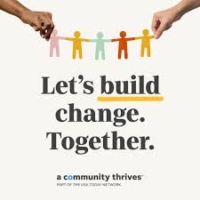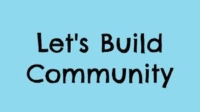
Nonfiction writers to avoid situations in which they have to explain why they they chose their title. They also know that they should never bury their lede (as journalists spell it), because readers often never make it past your first paragraph.
Alas, I have to break the rules here. It’s going to take me a while before you see why I kept finding myself returning to the Lowe’s home improvement store’s tag line from the late 2000s and even longer before I get to the infamous lede or why all of the images below are variations on that them.
Before I can get to why a marketing line from a store I’ve never set foot in, I do have to set the stage, especially given yesterday’s news that President Biden had decided not to continue his reelection campaign.
I’m going to have to keep the lede good and buried for a while.
But if you’ve made it this far, you might as well bear with me.
A Personal Reset
Born in 1947, I’m what’s known as an early boomer. I’m also in the ever dwindling part of my generation that is still professionally active.
Like everyone else in that shrinking universe, I’ve found myself asking a lot of questions about aging given the fact that, until yesterday, we had two presidential candidates, both of whom are older than I am.
I have no intention of weighing in on the “how old is too old” question.

Instead, I’ve taken aging in a different direction. The not very useful or interesting debate about whether or not Biden or Trump are too old to be president has led me to confront a question that I had been avoiding for too long like the gender neutral but still clichéd ostrich with their head in the sand.
I don’t have a lot of time left. My mother did live to be 102, but her physical and mental capacities both declined dramatically by the time she hit 90. And, I can’t assume that my genes will lead me to be productive for another fifteen years, since I inherited half of them my father who didn’t even make it to 70.
So, I’ve spent some time thinking about what I euphemistically refer to as “the time I have left.”
On a personal level, that led my wife and me to begin looking at senior and assisted living options. It only took us one visit to a lovely assisted living facility in our neighborhood to realize that we are not ready for that, though we might downsize to an apartment once Gretchen decides she doesn’t want to—or can’t—garden any more.
On a professional level, I have been rethinking my priorities. Because I haven’t had to have a full-time day job in thirty years, I’ve been able to spread my intellectual and political nets quite widely. I frankly love being able to follow my intellectual and political whims wherever they take me. And as the Alliance for Peacebuilding’s Senior Fellow for Innovation, that’s what I’m supposed to be doing.
President Biden’s disastrous showing in the June presidential debate finally convinced me to be less of a dilettante and create a list of priorities that I would actually pay attention to for the first time in my life. I’ve begun withdrawing from things that I’m not very good at and/or don’t really enjoy so that I can focus on four priorities.
- The Alliance for Peacebuilding’s Peacebuilding Starts at Home initiative which is the title we’ve given to our work in the United States
- Rotary which provides a unique entry point into the American mainstream
- ProSocial World which, in contrast, helps us expand the intellectual framework of what I do so that it includes psychological flexibility, systems thinking, and cultural evolution
- Mentoring the young peacebuilders who teach me as much as I teach them
Let’s Build Something Together and Do It On Line
At long last, we get to the lede.
In redefining my priorities, I realized that I had not given enough attention to the word in the Lowe’s slogan which I just italicized.
Each of the organizations that stayed on my list is in the building business. But it’s now clear to me that each is building things together with others. And in this century’s version of the roaring twenties, that has to include building things together on line.
For good or ill, I have not stressed the “together” side of things in my on line life. I have mostly used my blog posts to “broadcast” my take on world events.
I also realized that I could be doing a lot more given my personal history with technology. I started writing FORTRAN programs in first-year calculus class at Oberlin. I spent my two years as a conscientious objector as a c myomputer/data analyst for my PhD advisor at the University of Michigan and then wrote my own thesis and first book using early statistical tools that did what we would now call causal and systemic modeling. Although I stopped doing quantitative political science research shortly thereafter, I became an early adopter of all things technological beginning with the creation of the Internet and the invention of the personal computer.
More recently, I went to the first Build Peace conference in 2014 at the iconic MIT Media Lab because I was convinced that the technologies available to us then (and now) had the “affordances” that would let us build peace together.
The tech industry as a whole hasn’t evolved in that kind of a direction since then, but those affordances still exist.
So, maybe it’s time for me to rededicate myself to building a constituency for dot connecting, peace, and social change on line.
The Next Few Months
These days, I use Substack and Linkedin as my on line platforms of choice. Neither was designed for community building.
Nonetheless, I will gradually add ways of using both of them that will lay the groundwork for the addition of other tools that will take advantage of the fact that Peace is a Verb which I’m writing with Patricia Shafer and should be available by the middle of next year.
Modernize the blog posts. I’m beginning today by making some small but potentially significant shifts in the way I write on the web. To begin with, I will write a blog post of roughly this length each Monday along these lines.
- take on big issues as I’ve done in the last two posts on political depression and being part of constructive political discussions
- introduce new networks I’ve discovered starting with New Public which hit my virtual radar screen this week
- include guest contributors from the dot connecting community
- address breaking news, though I’m going to avoid weighing in on the changed presidential campaign until next week’s postegin creating a community. Because Substack has more flexibility on this front, I will start with it in my efforts to begin building a dot connecting community through a second tier of subscribers. The blog posts will continue to be available for free to anyone on all of the platforms I use.
Beginning with next week’s post, I will include prompts and tools that encourage and facilitate discussion with me and with other readers. That will become easier to do once I figure out how to do things like host podcasts or post my own videos and as the overall tone of The Dot Connecters convinces readers that it is a place to hold real discussions of the kind I wrote about in last week’s post. Frankly, no one really knows how to do that, but I’m going to experiment and try to figure out how to pull it off.
In addition, I will introduce some new features on Substack through a second subscriber tier sometime before the end of the summer. Yes, I will be adding a paywall, although everything I’ve discussed so far will remain free for all users and appear on several platforms.
The more I see other authors experimenting with Substack, I’ve realized that there are a lot of things we could do with subscribers who are committed enough to dot connecting that they are willing to pay a few dollars a month for a subscription. Since I don’t need to make any money from my on line life, I can continue doing the basic blog for free. Community building both through Substack and AfP’s Peacebuilding Starts at Home will cost some money, and the subscription fees will support both.
I’m still figuring things out and won’t launch the second tier of subscriptions until I do.
Nonetheless, here are some ideas to begin with. We could use the community to actually connect dots and put subscribers in touch with each so that they could incubate new projects or expand existing ones. Along with my colleagues at AfP and beyond, we could provide rudimentary consulting advice for those projects. Who knows, our publisher might let us include a copy of our book as part of the subscription which would help us build support for actually doing peace-as-a-verb.
Because I already use it more effectively, I haven’t given much thought to how I can do more with Linkedin. If nothing else, I’ll spend more time systematically reading and reacting to what other people post which I do during those inevitable down times in the day, especially at those moments when I’m feeling politically clinically depressed.
I will begin rolling out those features in August, but if you have any ideas, click here to send me an email with your ideas.
Creating new on line tools. I don’t have the technical skills to develop new tools that would help us build the communities I’ve been dreaming of since I gave my first talk on the Internet to a group of Advanced Placement government teachers in 1995 (at which, by the way, I told the audience that no one would ever need a graphic browser like the then new Netscape).
Nonetheless, I will be updating my personal web site which I haven’t touched since the pandemic began and develop a separate one with Patricia before Peace is a Verb gets published. In the meantime, I will be scouring the web looking for tools that can help build a dot connecting community.
As things stand now, I won’t get to this part of the work until the fall.

The Bottom Line
For the purposes of this post, I bring two things two the table.
- A decades long commitment to connecting the dots across issue based and ideology lines as a political strategy
- Using the Internet as one of many tools in expanding the community of dot connecters
At this point, I also know that I have a lot to learn, much of which I hope to share with you.
NEXT WEEK: Why November 6 matters as much as November 5 given the upheaval in the presidential race.
The views and opinions expressed in this article are those of the author and do not necessarily reflect the official policy or position of the Alliance for Peacebuilding or its members.

